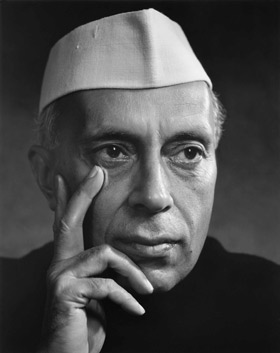Nehru, the scholar
With many Anti-Nehru arguments around, it is better to avoid speaking about his political face than not to. So, now I through light over another aspect of his personality, that which produced the politician in him, the 'Scholar'.
Ideology and politics
As the Prime Minister of India for seventeen long years, he led it through periods of hardships but many argue, he led it 'to' periods of hardships. His tenure is marked with the erection of four pillars -
'Socialism', for which he is both acknowledged and criticized; democracy; unity; secularism. This were more of his personal beliefs than the collective identity of the party. This were a result of his scholarly study of history and politics. The industrialisation of India was manifest due to the Planning Commission and its Five Year Plans. These were adopted from 'Pyatiletka' of USSR.
Writer
He was a proponent of Literature in general and Indian Literature in specific. He's penned a few books including: Glimpses of World History, Discovery of India, Letters from a father to a daughter, An Autobiography : Towards Freedom.
Glimpses of World History : It could be one of the best works by an Indian in the genre. Between 1932 and 1934, Jawaharlal Nehru wrote letters to his daughter, Indira Priyadarshini explaining events as they happened in the history of the world. He speaks of ancient civilisations and how medieval empires produced the world till the mid 1930's. Almost half the book describes how the modern world was created focusing on the revolutions out of which arose democratic principles and ideals. He was a devotee of democracy, not being a devotee of a god (He was agnostic). Almost one-third of the book explains the period between 1850 and 1930 with multiple chapters devoted wholly to Marxism and Communism. His orientation towards the Soviet Union seems to be justified by the chapters explaining the policies of Lenin. As an Asian Nationalist resisting European winds of power, he elucidates the rise of nationalism in Egypt and the Middle East against the background of European Nationalism.
Discovery of India : This book was authored in 1944 as he sat behind the bars of Ahmadnagar Prison. He analysed the conditions during the dusk of British Raj and then projected what he believed to be the future of India from those instances and then he went back in time and traced India's footsteps that finally manifested the Raj. As an analyst less than three years later, he stepped in as India's First PM.
In 'An Autobiography', he illuminated the Freedom Struggle of India as it unfolded. In his letters to his daughter he explained history, science and natural history evidently in the shoes of a scientist.

No comments:
Post a Comment